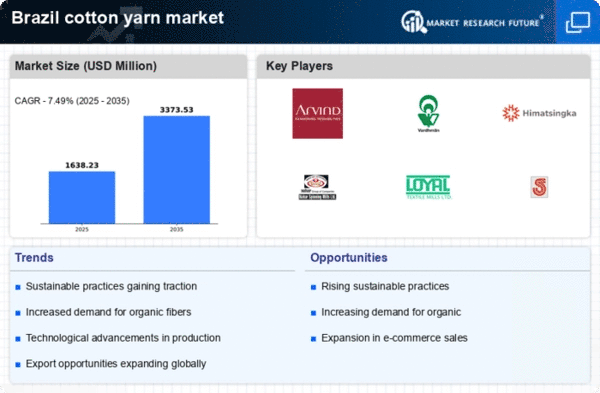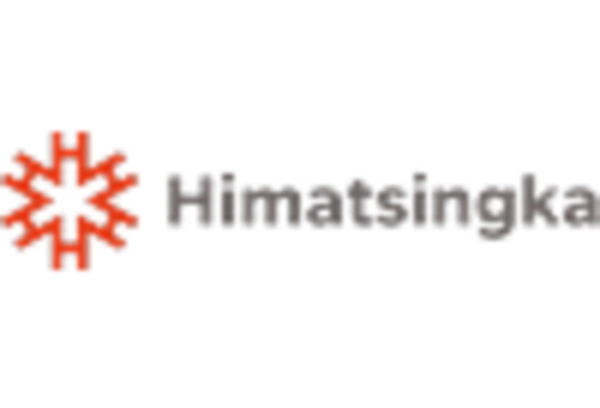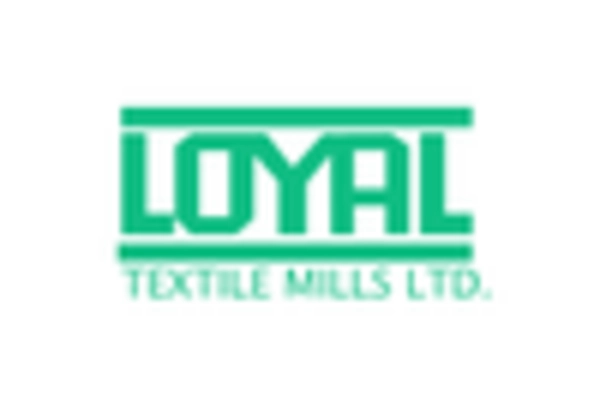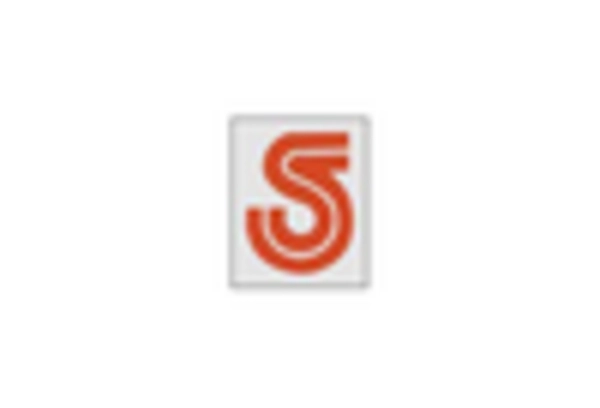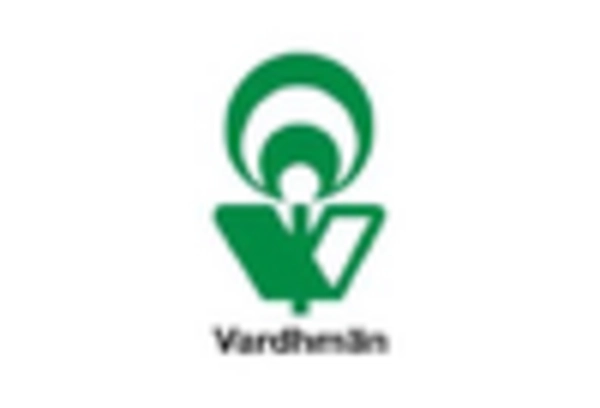The cotton yarn market in Brazil exhibits a competitive landscape characterized by a blend of established players and emerging companies, driven by factors such as increasing demand for sustainable textiles and technological advancements in production processes. Key players like Arvind Limited (IN), Vardhman Textiles Limited (IN), and Himatsingka Seide Limited (IN) are strategically positioned to leverage these trends. Arvind Limited (IN) focuses on innovation in sustainable practices, while Vardhman Textiles Limited (IN) emphasizes regional expansion and supply chain optimization. Himatsingka Seide Limited (IN) is enhancing its digital transformation efforts, which collectively shape a competitive environment that is increasingly focused on sustainability and efficiency.The business tactics employed by these companies include localizing manufacturing to reduce lead times and optimize supply chains. The market structure appears moderately fragmented, with several key players influencing the dynamics. This fragmentation allows for a variety of strategies to coexist, fostering competition that drives innovation and responsiveness to market demands.
In October Arvind Limited (IN) announced a partnership with a leading technology firm to develop AI-driven solutions for optimizing production efficiency. This strategic move is likely to enhance their operational capabilities, allowing for better resource management and reduced waste, which aligns with the growing emphasis on sustainability in the textile industry.
In September Vardhman Textiles Limited (IN) expanded its manufacturing capacity by 20% through the acquisition of a local spinning mill. This acquisition not only strengthens their market position but also enables them to meet the rising demand for cotton yarn in Brazil, indicating a proactive approach to market growth and customer satisfaction.
In August Himatsingka Seide Limited (IN) launched a new line of organic cotton yarns, catering to the increasing consumer preference for eco-friendly products. This initiative reflects a strategic pivot towards sustainability, positioning the company favorably in a market that is progressively leaning towards environmentally responsible practices.
As of November the competitive trends in the cotton yarn market are increasingly defined by digitalization, sustainability, and the integration of advanced technologies. Strategic alliances among companies are shaping the landscape, fostering innovation and collaboration. The shift from price-based competition to a focus on technological advancement and supply chain reliability is evident, suggesting that future competitive differentiation will hinge on the ability to innovate and adapt to evolving consumer preferences.


